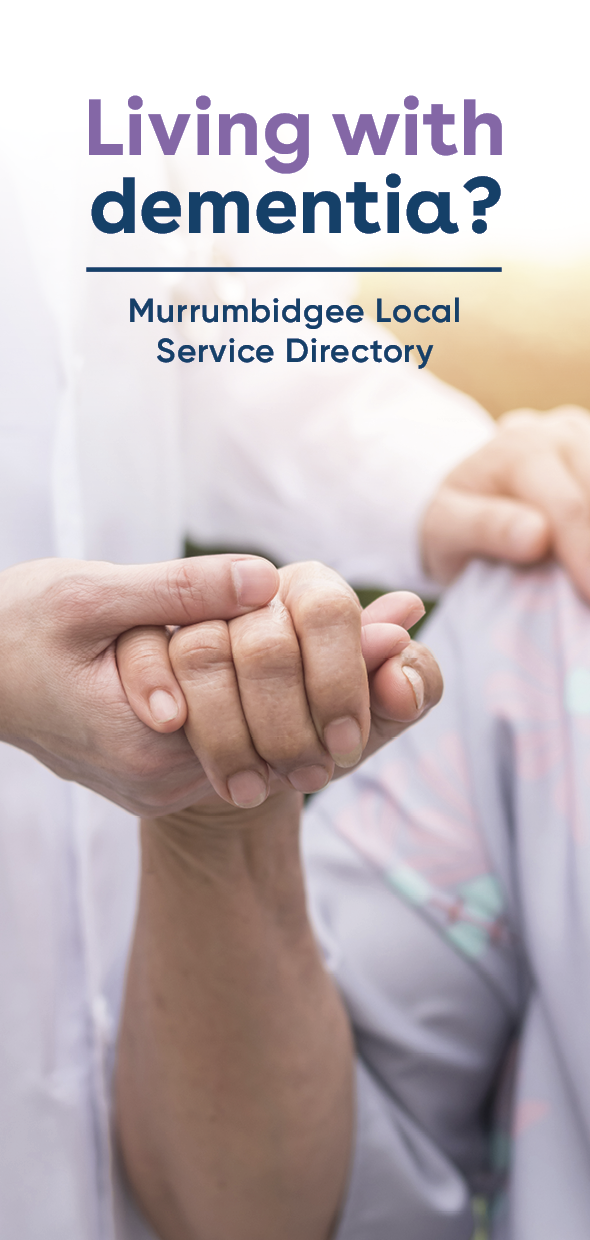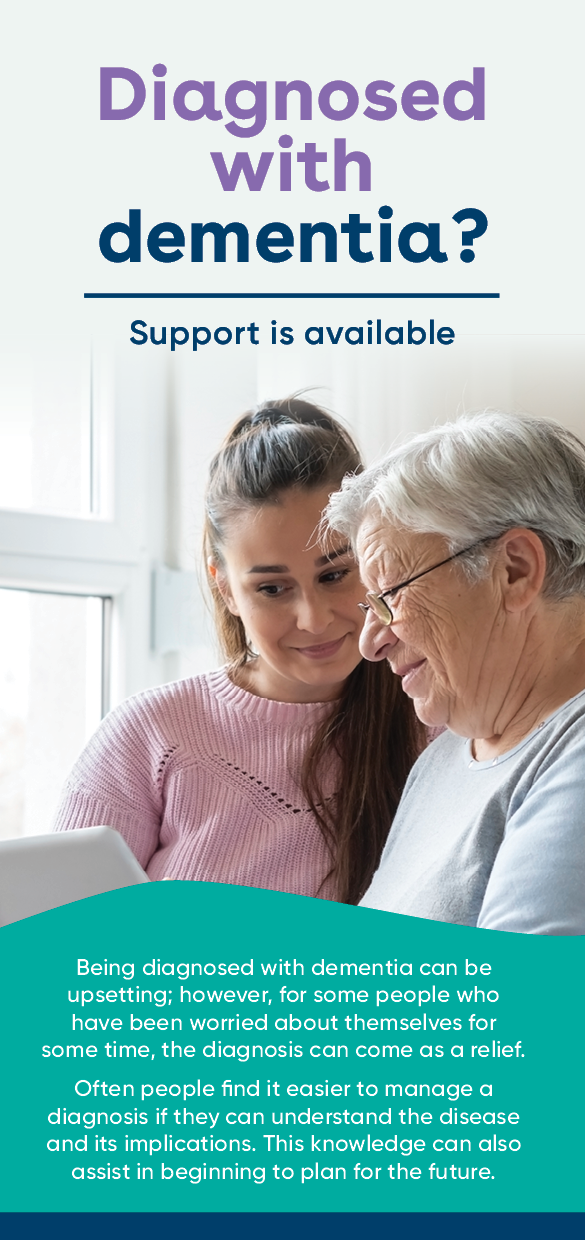Dementia care support for community
Being diagnosed with dementia can be upsetting; however, for some people who have been worried about themselves for some time, the diagnosis can come as a relief. Often people find it easier to manage a diagnosis if they can understand the disease and its implications. This knowledge can also assist in beginning to plan for the future.
Download our resources:
Useful resources
Dementia Australia - Dementia Australia is the national peak body for people impacted by dementia. It supports and empowers the estimated half a million Australians living with dementia and the almost 1.6 million people involved in their care.
Dementia Australia Resources - Information and ideas for carers, family members and friends including activities for people with dementia, managing changes in communication, and taking care of yourself.
Dementia Australia Help sheets help provide advice, common sense approaches and practical strategies on the issues most commonly raised about dementia.
Advance Care Planning is a voluntary process of planning for future health and personal care whereby a person makes their beliefs, values and preferences known so they can be used to guide future decision-making in the event that the person is unable to make or communicate decisions.
Making an Advance Care Directive - An Advance Care Directive is an important way of letting people know your wishes about your healthcare and treatment should you find yourself in a position where you are seriously ill or injured and not able to make decisions. Having an Advance Care Directive will make it easier for your loved ones and health staff if they need to make decisions for you.
Appoint an Enduring Guardian - An Enduring Guardian is someone you appoint to make lifestyle and health decisions on your behalf, when you don't have the capacity to make them for yourself. You decide the areas or ‘functions’ that you wish to give to your Enduring Guardian. They may include making decisions such as where you live, what services are provided to you at home, and what medical treatment you receive.
Enduring Power of Attorney and General Power of Attorney Enduring Power of Attorney is a legal document that allows you to appoint a person(s) to manage financial and legal decisions on your behalf and continues even if you lose the ability to make decisions for yourself. A General Power of Attorney is a legal document that allows you to appoint a person(s) to manage financial and legal decisions on your behalf, only while you have the ability to make your own decisions.
Local resources – Coming soon!
My Aged Care is your starting point to access government-funded aged care services.
Carers Gateway provides eEmotional and practical services and support for carers.
Care finder supports vulnerable, older members of our community who currently find it difficult to access services and who do not have an existing support network (family or friends) to help them.
Aged Care Specialist Officers - An Aged Care Specialist Officer (ACSO) is part of My Aged Care face-to-face services. They can help with your aged care matters.
Bereavement Supports include:
Australian centre for grief and bereavement provide a range of education, training, research and professional service options for those working in the area of grief and bereavement.
Griefline provides access to free grief support and resources.
Caresearch -information and resources that may be of help when a person dies.
NSW Government - services that can help people to understand and process the death of someone close to them.
Other links
Care for confused hospitalised persons information for carers and families.
Care for confused hospitalised persons resources and useful links.
Forward with Dementia gives you answers after a dementia diagnosis.



